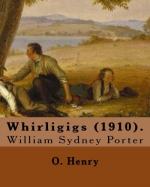
|
| Name: _________________________ | Period: ___________________ |
This test consists of 5 multiple choice questions, 5 short answer questions, and 10 short essay questions.
Multiple Choice Questions
1. When the narrator lists the kinds of inappropriate relationships that May encourages, one of the items in the list is "old chaps" who dress up and "parade in front of the Normal School" (332). Who are these old men trying to impress with their fancy clothing?
(a) Lower-class college-aged women.
(b) Young women training to become school teachers.
(c) Female college professors.
(d) Schoolgirls.
2. What does the narrator call the "most potent weapons of insidious May" (334)?
(a) Flowers.
(b) Warm breezes.
(c) Sunny days.
(d) Birds.
3. Who is Miss Van Meeker Constantia Coulson?
(a) Mr. Coulson's granddaughter.
(b) Mr. Coulson's daughter.
(c) Mr. Coulson's sister.
(d) Mr. Coulson's aunt.
4. According to the narrator, what does May want humans to remember?
(a) That they are also animals.
(b) That they are not immortal.
(c) That they should be grateful for the coming summer.
(d) That they should be kind to one another.
5. What is the purpose of the allusion to the "virgin of Cologne" (334)?
(a) It characterizes Miss Coulson as cruel and selfish.
(b) It foreshadows later plot events.
(c) It reminds the reader that Miss Coulson is very religious.
(d) It implies that Miss Coulson is uninterested in romantic love.
Short Answer Questions
1. What does Mr. Coulson call Mrs. Widdup when she starts talking about "ivy and hand-organs" (335)?
2. What are the "portières" that Miss Coulson is sitting near?
3. What is the first indication that Mrs. Widdup does not listen carefully?
4. Why is Mr. Coulson so clumsy on the afternoon after the ice is delivered?
5. What is clear in the first interaction between Mr. Coulson, Miss Coulson, and Mrs. Widdup?
Short Essay Questions
1. Explain the technique at work in the sentences "Sparrows wrangled happily everywhere outdoors. Never trust May" (333).
2. When Mr. Coulson finally confesses his feelings to Mrs. Widdup, what drawback to himself does he acknowledge, and what advantage does he say balances this drawback out?
3. What is the rhetorical purpose of the allusions to Puck and Circe?
4. What happens overnight that changes Mrs. Widdup and Mr. Coulson's fate?
5. How do words like "yaller" and "lawsy" in Mrs. Widdup's dialogue characterize her?
6. Explain the titular allusion and the allusion to "the poet" in the first sentence of the story.
7. When Mr. Coulson comments that the spring weather is "lovely," his daughter replies "That's just it" (334). What does she mean by her reply?
8. What is Miss Coulson's plan to head off her father's budding romance?
9. How does O. Henry use dry humor to reveal the narrator's opinion about Mrs. Widdup in the narrative intrusion on page 333?
10. What rhetorical purposes does O. Henry accomplish with his introduction of Mr. Coulson through a list of things that he "has," like gout, money, and a daughter?
|
This section contains 1,198 words (approx. 4 pages at 300 words per page) |

|




